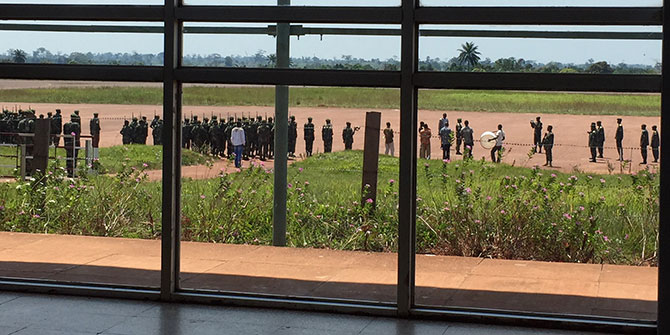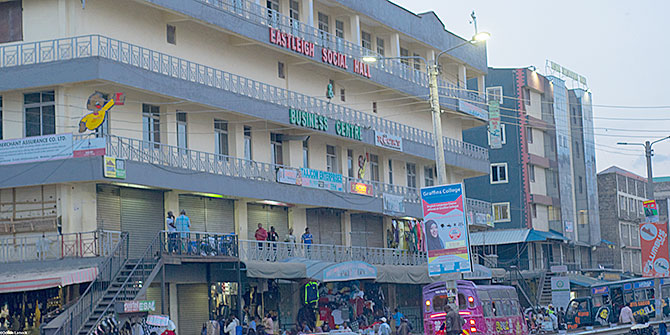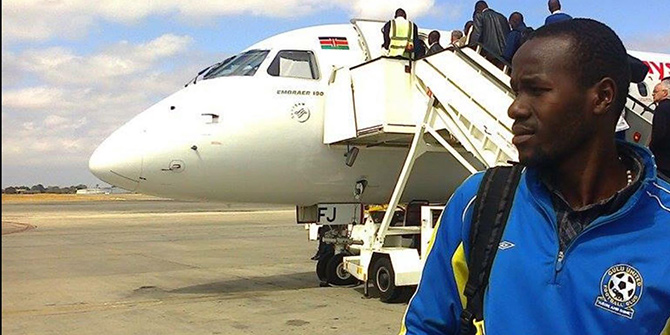UK Conservative MP, Julian Brazier recommends outsourcing immigrants to Kenya as one way of reducing asylum seekers in Britain, but LSE’s Katy Long argues that this approach demonstrates a lack of understanding of Kenyan politics and the plight of Somali refugees in the East African country.
The idea that Britain is “overcrowded” is an oft-repeated mantra for those who want to see massive reductions in UK immigration. Last week, one Conservative MP offered his thoughts on how to rid our “Overcrowded Land” of unwanted immigrants. These include outsourcing asylum.
Julian Brazier’s claims are spurious and ill founded: I’ve explained why in more detail here. Yet what has made me most angry is his conclusion that:
Such a move ignores the fact that the vast majority of Somalis in the UK are not illegal immigrants or even asylum seekers (only 663 Somali asylum claims were submitted in the UK in 2012), but instead are legal residents and even British citizens. However it also displays a real lack of understanding about either Kenyan politics or the current sufferings of Somali refugees in Kenya.

Although Britons may believe that we host a disproportionate number of refugees and asylum-seekers, they’re wrong. 80% of refugees are hosted by developing world states. Kenya alone currently hosts close to a million refugees, asylum seekers, stateless persons and internally displaced people (a reminder that Kenya’s democratic peace is a fragile one). That’s around 2.35% of the total Kenyan population. It hosts 568,000 registered Somali refugees. Dadaab – the world’s largest refugee camp – is also the third-largest city in Kenya. Refugees and asylum seekers comprise just 0.33% of the UK’s population.
The market evangelists may argue that this proposal wouldn’t add to Kenya’s refugee “burden” (although Dadaab actually contributes $14m into the regional economy each year). Yet the objections are obvious. Turning refugees into commodities stretches the moral capacity of market-based solutions beyond what is reasonable. And while neither the proposals nor the objections are new – Australia’s Malaysia deal, struck down by its High Court on human rights grounds, would have operated on pretty similar principles – the choice of Kenya, whether framed as “dumping ground” or “migration management partnership” suggests an extraordinary level of ignorance on Brazier’s part.
For Kenya is a country where anti-migrant – and especially anti-Somali – sentiment is virulent. This is in part a reflection of Kenya’s own national history and lingering suspicion about the allegiances of its own Somali minority. I first learned of Brazier’s plans when a friend sent me a link to an East African news site. Many of the comments below the line would make Britain’s far-right proud. It seems like Kenya is already “full” too.
Somalis are subject to suspicion, discrimination and exploitation, particularly at the hands of corrupt Kenyan police. In December, the Kenyan government announced that all urban refugees would be required to leave the city and live in (severely overcrowded) camps. Though this decision has not been enforced, several thousand Somalis have fled Kenya in fear of forced relocation and possible returns to a still insecure Somalia. I suspect Brazier knows very little of this.
And while Kenyans may agree with Brazier about the malevolence of asylum seekers in general, they are opposed to his plan in particular. Britain doesn’t want them: we don’t want them either. The sun set on the Empire fifty years ago. To suggest that Kenya should take those we do not want – even for a price – is unavoidably tainted by the wrongs of the colonial past.
The easy response, of course, is that “it will never happen”. Yet Brazier’s comments confirm the idea that asylum seekers are the “scum of the earth”: people to be detained, contained, deported, whose value can be calculated – like some form of human toxic waste – in their safe removal and storage. And in having an impact in Kenya, such comments also underline the poisonous potency of “overcrowding” myths – peddled in Britain by petty nationalists for Daily Mail readers – help to form a global anti-migration narrative that should shame us all.
Katy Long blogs at Footsteps to Freedom and you can follow her on twitter @mobilitymuse.





